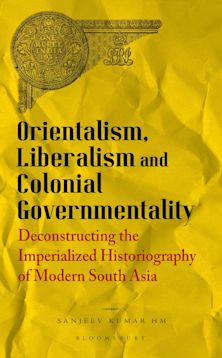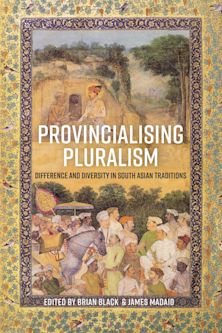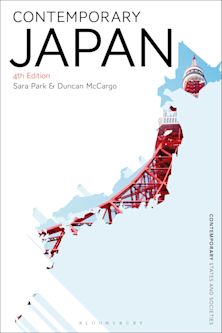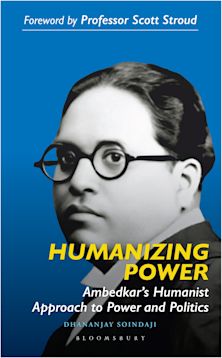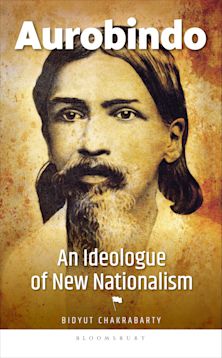Taiwan's Struggle
Voices of the Taiwanese
Taiwan's Struggle
Voices of the Taiwanese
Description
This comprehensive book explores contemporary Taiwan from the perspective of the Taiwanese themselves. In a unique set of original essays, leading Taiwanese figures consider the country’s history, politics, society, economy, identity, and future prospects. The volume provides a forum for a diversity of local voices, who are rarely heard in the power struggle between China and the United States over Taiwan’s future. Whether it will be absorbed by China, continue in its current limbo as an unrecognized state, or seek outright independence and national sovereignty remains an open question. Reflecting the deep ethnic and political differences that are essential to understanding Taiwan today, this work provides a nuanced introduction to its role in international politics.
Contributions by: Andrew C. Chang, Chang Chang-yi David, Pochih Chen, Chen Yi-shen, Chi Guo-chung, Strong C. Chuang, Frank S. T. Hsiao, Jolan Hsieh, Joseph C. C. Kuo, Lee Shiao-feng, Shyu-tu Lee, Lee Teng-hui, Marie Lin, Jay Tsu-yi Loo, Lu Hsiu-lien Annette, Peng Ming-min, George Sung, Michael M. Tsai, Tsay Ting-kuei (Aquia), Tu Kuo-ch’ing, Jack F. Williams, Wong Ming-hsien, Wu Rong-i, Wu Rwei-ren, and C. Eugene Yeh.
Table of Contents
Shyu-tu Lee and Jack F. Williams
Part I: Society and Identity
Chapter 1: Establishing a Taiwan-Centered Identity
Lee Teng-hui
Chapter 2: Fragment of/f Empires: The Peripheral Formation of Taiwanese Nationalism
Wu Rwei-ren
Chapter 3: Two Different Cultures: Taiwan vs. China
Lee Shiao-feng
Chapter 4: Democratization in Taiwan: Lifting the Blacklist
George Sung
Chapter 5: The Struggle against KMT Rule: A Personal Memoir
Strong C. Chuang
Chapter 6: Nonviolent Struggle in Taiwan: A Personal Memoir
Tsay Ting-kuei (Aquia)
Chapter 7: Retracing the Han among the Taiwanese
Marie Lin
Chapter 8: Subjectivity and Tradition in Taiwanese Literature
Tu Kuo-ch’ing
Chapter 9: Development of Human Rights Consciousness in Taiwan
Jolan Hsieh
Part II: International Status
Chapter 10: The International Status of the Taiwanese People
Peng Ming-min
Chapter 11: Pariah Manifesto: The Moral Significance of the Taiwanese Tragedy
Wu Rwei-ren
Chapter 12: The Shaping of Taiwan’s Status after World War II
Chen Yi-shen
Chapter 13: Westerners’ Perceptions of Taiwan and Taiwanese Anxiety
Andrew C. Chang
Chapter 14: America’s Security and Taiwan’s Freedom
Jay Tsu-yi Loo
Part III: International Relations
Chapter 15: The “Black Hole” and the “Mystery Force”: Taiwan Caught Between China and the United States
Joseph C. C. Kuo
Chapter 16: Silent Annexation: China’s Unification Strategy
Wong Ming-hsien and Lu Hsiu-lien Annette
Chapter 17: Threat to Taiwan and the Asia-Pacific Region: The Rise of China’s Military Power
Michael M. Tsai
Chapter 18: Economic Integration in East Asia: The Perspective from Taiwan
Wu Rong-i
Chapter 19: ECFA and China’s Strategy to the World
Pochih Chen
Part IV: Economy, Technology, and Environment
Chapter 20: Taiwan in the Global Economy: End of the “Miracle”?
Frank S. T. Hsiao
Chapter 21: Development of Taiwan’s High-Technology Industries
C. Eugene Yeh and Chi Gou-chung
Chapter 22: Taiwan’s Environment at a Pivot Point
Chang Chang-yi David
Bibliography
Product details
| Published | 18 Feb 2014 |
|---|---|
| Format | Ebook (Epub & Mobi) |
| Edition | 1st |
| Extent | 316 |
| ISBN | 9781442221437 |
| Imprint | Rowman & Littlefield Publishers |
| Illustrations | 6 b/w illustrations; 2 b/w photos; 1 table |
| Publisher | Bloomsbury Publishing |














